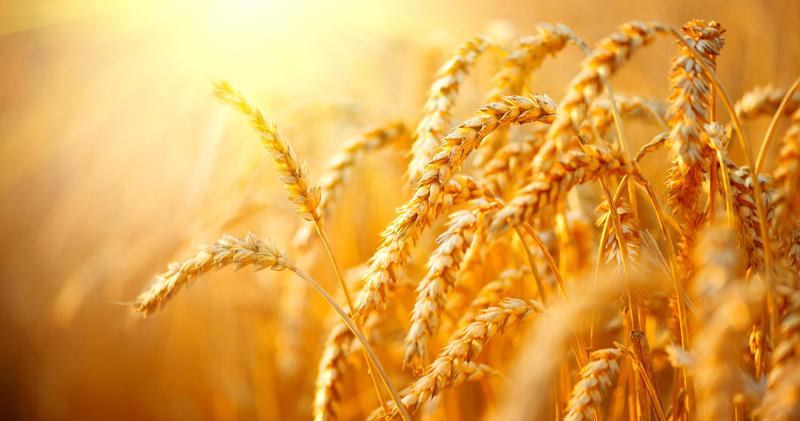The government acknowledges that the budget will be affected by the rise in international wheat and oil prices
Good morning, dear readers, today our publication is full of news, which mostly deals with the repercussions of the Russian war in Ukraine on the global and local levels.
Remember the historical commodity shock we mentioned yesterday? Apparently not historical enough, as Washington is considering banning the import of oil and gas from Russia - the world's second-largest producer.
Brent crude jumped during the early hours of this morning to its highest level since 2008 after US Secretary of State Anthony Blinken announced that Washington was in "very active discussions" with Western allies about imposing an embargo on Russian oil and gas in response to Moscow's military campaign in Ukraine. . This move could gain the support of Congress. As expected, the markets reacted to this news, as the price of a barrel of oil rose by 18% to reach $139 at the beginning of trading. The price of crude fell to $129.1 at the time of our publication (up 9.2% from yesterday).
Are they serious about it? So far, the idea of a Russian oil embargo has been (and for good reason) off the table, as Moscow accounts for 17% of global gas supplies and 12% of the global oil market already suffering from the repercussions of the conflict, along with a post-Covid-19 demand recovery. 19". So banning Russian oil and gas would be suicidal for the energy-deficient European Union, which gets about 40% of its natural gas from Russia. Inflationary pressures in the United States and Britain, which already face soaring energy costs, will also be severe. A potential move would be particularly difficult for US President Joe Biden, who is facing growing criticism at home over his administration's handling of fuel prices, which are now at their highest level since 2008.
We also hope that Western policymakers are aware of what the world would be like without Russia. The war has already caused shock waves in the developing world, with prices for food, raw materials and energy already rising to levels not seen in decades. The International Monetary Fund warned last week that the war on Ukraine and sanctions against Russia would have "severe effects" on the global economy, before Blinken hinted at the possibility of Russian oil and gas embargoes.
Equity markets also experienced a similar shock, with Asian markets posting further declines this morning, and Hang Seng posting the biggest losses (-3.6% at time of publication). The declines in futures contracts suggest that things will not be better off in the stock markets in Europe and the United States later today.
*** We would like to commend this morning the performance of the Minister of Finance, Mohamed Maait, the Minister of Supply Ali Al-Moselhi and the Minister of Petroleum Tariq Al-Mulla. For more than a week, the three have been keen to appear and speak transparently about the measures taken by the government to deal with the rise in commodity and oil prices.
In light of the current developments, vulture funds begin to snap up Ukrainian and Russian debt instruments, according to the Wall Street Journal.
Also - What Moscow Loses, Dubai Gains: US investment bank Goldman Sachs has decided to move its employees from Russia to Dubai, Bloomberg reported.
More about the repercussions of the Russian-Ukrainian war on Egypt in our post this morning.
Today we follow -

You can now get your second dose of the "Covid-19" vaccine or the booster dose at any vaccination center, according to the new controls announced by the Ministry of Health yesterday.
But there's one caveat: you can't get a booster at any center unless you don't get a text to go to a particular center. People over 65 years old can get the booster dose three months after their second dose, while those under 65 must wait six months before getting it. People who get the Johnson & Johnson vaccine can get the booster dose after two months.
The dust storm may have passed, but winter is not over yet, said Mahmoud Shaheen, director general of the Meteorological Authority's Prediction and Early Warning Center, in a phone interview with Lamees Al-Hadidi on her "A Last Word" program (watch, runtime: 2:10). Don't get dressed in summer yet: The cold weather is expected to last until the end of winter on March 21st. The maximum temperatures in the capital are expected to range between 21 and 22 degrees Celsius, and the minimums between 10 and 12 degrees Celsius until Thursday, according to the authority (PDF).
We're following this month -
The Egyptian Electricity Transmission Company and Saudi Arabia's renewable energy company ACWA Power will sign a power purchase agreement for 1,100 megawatt wind energy projects this month, informed sources told Al Borsa newspaper on Sunday. The total investment cost of these projects is estimated at $1.2 billion, according to the sources.
|
in notepad -
US Deputy Secretary of State Wendy Sherman will visit Cairo next Thursday and Friday, according to a ministry statement. Sherman is scheduled to meet with Foreign Minister Sameh Shoukry, the head of the National Council for Human Rights, Mushira Khattab, and a number of senior officials, according to the statement.
The Center for Contemporary Art and Culture Darb 1718 is hosting the 3031 Art Festival until March 12th at its premises in Fustat. The center displays a unique collection of various arts, along with live music, dance, theater performances and interactive workshops. Speakers from Adsum Art Consultancy will discuss investing in art. You can spend a full day of activities on weekends from 1 pm to 9:30, while events are held from 4 pm to 10 pm on weekdays.
The most prominent economic indicators that we can expect in March:
"Welcome Ramadan" exhibitions will kick off on March 24 and run until April 1 at the Cairo International Convention Center in Nasr City.
You can view the full diary on our website, in which you will find a comprehensive list of upcoming news events, national holidays, conferences, and everything of interest to the business and financial community.
This morning again, we present to you Blackboard, the first specialized publication from Enterprise focusing on education in Egypt, from pre-primary education to higher education. It contains a mixture of news, analysis, data and figures, to enrich the dialogue between specialists in this sector and inform non-specialists of its most important developments. Blackboard comes out every Monday and you can find it at the end of the newsletter.
In today's issue: YouTube has become the go-to edutainment platform, with millions of hours of free online learning. But the vast amount of information (and misinformation) available means that it is more important than ever to choose your sources wisely. To help guide you through online learning, we present our roundup of some of the most interesting and accurate channels of information available.










